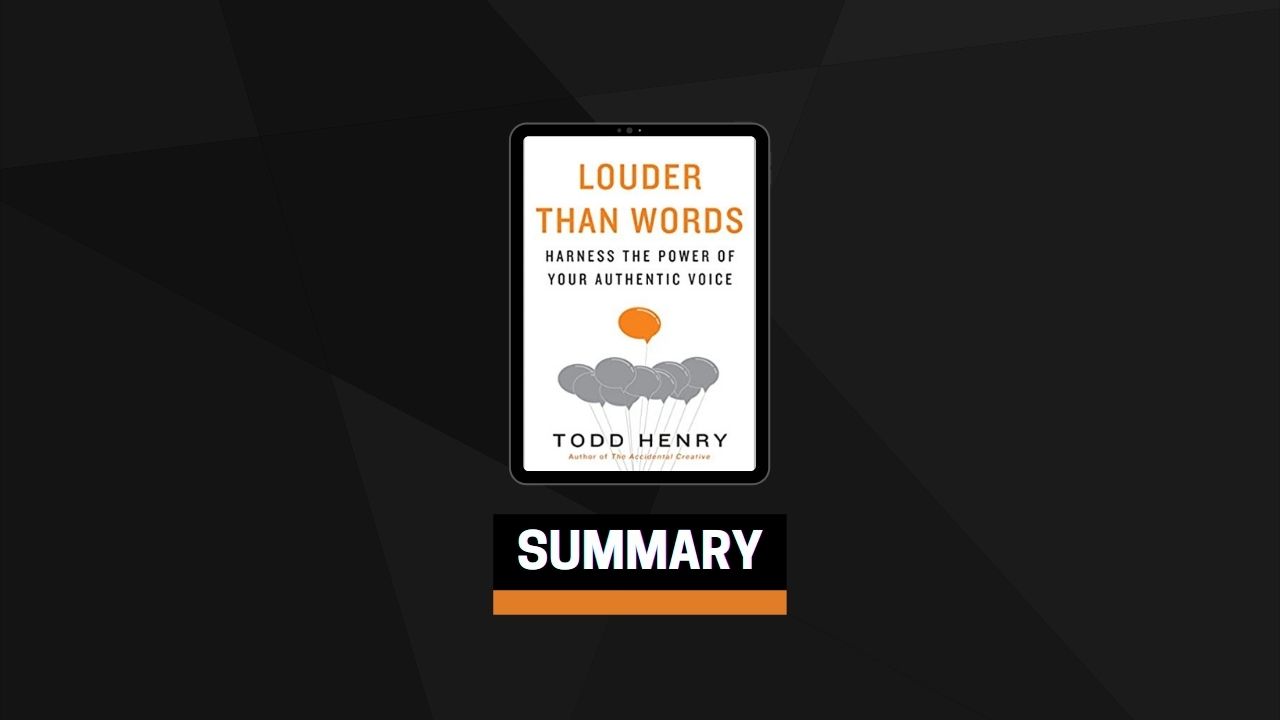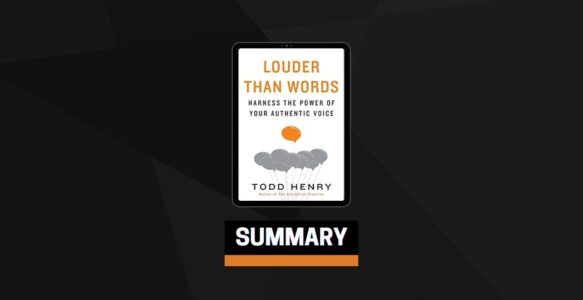The Art of Resonance
Principle: To cultivate an authentic voice you must develop its three elements—Identity, Vision, and Mastery.
To develop your authentic voice, you must cultivate three things: a strong sense of identity, which means doing work that is rooted in something substantive and personally meaningful; a consonant vision for your work, meaning a sense of the ultimate impact you want to have; and mastery of your skills and platform.
A strong, authentic, compelling voice is the expression of identity, guided by vision, and achieved through mastery. These three work together as a part of the lifelong process of growth and discovery. Developing your authentic voice is the result of lifelong layers of learning, experimentation, and failure.
The Hurdles
Principle: To develop your authentic voice you must overcome the forces that keep you in a place of conformity and comfort.
Every creative project—writing a book, starting a business, or building a blog—follows this same U shape. If you rely solely on your emotions to guide you, it’s likely you’ll give up just as you’re on the uptick again. Instead, you must be guided by a larger vision for your work, and keep the end goal in sight, even when it’s obscured by complication and frustration.
The process of developing your voice is the process of navigating a series of U shapes. There will be peaks upon which everything seems so clear and your work is so on target that you want to share it with everyone you meet, and there will be valleys in which you question why you’re even trying. It’s all part of the process, and it’s never ending. However, the key is to remain focused on your vision and embrace the journey. As famed sculptor Auguste Rodin remarked, “Nothing is a waste of time if you use the experience wisely.” The peaks, the valleys, and the struggles in between are all useful in pointing you toward the brilliance that’s being called out of you. Nothing is wasted.
The Aspiration Gap
Principle: As you develop your authentic voice, you will repeatedly experience four phases of growth—Discovery, Emulation, Divergence, and Crisis.
The process of developing your authentic voice is not linear, it is a curved line. There is an ebb and flow to growth, and you will often feel like you have to take a few steps backward in order to advance. This is because growth demands that you push yourself to your limits—and often beyond—in order to increase your capacity. A piano virtuoso will not continue to improve if she practices only the chords and scales that are easy for her, nor will a writer improve his craft if he stays squarely in his comfort zone. As the writer Joshua Foer put it, “When most musicians sit down to practice, they play the parts of pieces that they’re good at. Of course they do: it’s fun to succeed. But expert musicians tend to focus on the parts that are hard, the parts they haven’t yet mastered.” Most musicians get stuck in what Foer describes as the “OK Plateau,” or a place of comfort where existing skills are good enough to suffice.
However, because expert musicians are consistently stretching themselves to attempt new things, they discover new avenues of expression to explore, master, and implement into their own style. Over time, their platform for expression grows, and they are better prepared when the moment of opportunity arises. As they build their platform, they sharpen their instincts, and increase their ability to express themselves.
The same principle applies to nearly any kind of creative endeavor, but there’s a strong catch involved: you must be willing to endure a period of incompetence, which may last months or even years, in order to see progress in closing the gap.
Identity: Who Are You?
Principle: For your voice to resonate, it must be rooted in authenticity and uniqueness.
Today, most people default to “looking for the angle” when examining an idea, which means that it is harder than ever to gain trust and credibility. We have been warped by decades of positioning and inauthentic pitches. While it’s nearly impossible to win over everybody, the key to overcoming the skeptics and cynics is to operate from a place of authenticity. What people really want to know when they interact with your work is “Do they really believe what they are saying? Are they really invested?”
What does this have to do with developing your voice? Everything, if you want your work to resonate with your audience. You have to know what you believe, what you stand for, and what you’re willing to invest yourself in (fully) if you want your work to stand against the onslaught of skepticism and critique. A unique, compelling voice isn’t about manipulation, it’s about influence, which ultimately begins with a firm understanding of yourself and what matters to you.
To identify your through-line, and then to cultivate authentic investment, it helps to first identify the resonant themes within your work, then distill those themes into a personal operating manual, or working manifesto, that is designed to help you stay on course while potentially attracting others to your mission as well.
Vision: Where Are You Going?
Principle: For your voice to resonate, your vision must center on the audience you are trying to impact.
Seth Goldman, cofounder of Honest Tea, said that muscle and distribution alone are not sufficient to guarantee that you’ll achieve critical mass with your idea. Just because you make something, he said, doesn’t mean that people are going to beat a path to your door. “You have to have something different. You can’t just be a ‘me too’ product. The shelves are full. You have to justify your place.”
In his opinion the most important quality for an entrepreneur is to be fully vested in a vision. “You have to build something you’re passionate about. The world is too competitive and life is too short. If you’re not one hundred percent in on all fronts, it’s just too easy to get knocked down and not get back up.” This doesn’t mean that you have to enjoy every aspect of what you do, but that you have to have a compelling vision that continues to push you forward even when things get hard or obstacles materialize in your path. You have to understand the space you’re trying to occupy, and the change you’re trying to create.
Mastery: How Will You Get There?
Principle: To develop a voice that resonates, you must gain mastery over the basic skills necessary to express your ideas and over emerging themes in your environment.
On occasion, growth requires a sprint. While your slow, steady, deliberate progress will be enough to get you moving in the right direction, you also have to be prepared for those moments when the work will demand everything you have for a season. This is not (necessarily) unhealthy if it’s a part of a natural rhythm, or ebb and flow, of your work. However, if it’s something that happens every week, it means that you are likely headed toward burnout. Sprint when necessary, but if you are being intentional and deliberate, your work should require occasional sprints, not an all-out footrace.
Don’t be lulled into the idea that being busy and making progress is necessarily going to net you a win. You have to be intentional and deliberate about your activity, and you have to be willing to sprint when the occasion calls for it.
Your Authentic Voice Is A Gift That Returns To You
In the “cult of celebrity” that we’ve created, the desire for attention often trumps the desire to create and contribute value. If something has fewer likes, views, or shares, then it’s deemed less valuable than something with viral appeal. As such, many people have taken to shape-shifting according to whatever will lend more social credibility.
As you consider the gift that you have to offer—the expression that is uniquely yours, and yours alone to give away—consider this: the impact of a gift given away in freedom is vast, while a gift spent on the giver quickly fades.
Your authentic voice is a gift. How will you offer it to others today through your work?
Answering that question is your life’s mission.


